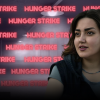
As tensions are raising between the United State and Islamic Republic of Iran, some believes a military conflict between Iran and America is inevitable and that it is just a matter of time. Others think any such conflict would be accidental. One thing is certain: Iraq is suffering in between.
Salim Dalimi, an expert on Iran and Arabian Gulf countries’ affairs told Avatoday, in an exclusive interview, that “Trump is determined to what he is doing. As he said earlier, he wants a fair deal.”
He emphasized the US President wants to be assured that, “Iran would stop its nuclear and ballistic missile programs, and it would not intervene in other countries local matters in the region.”
Dalimi has also talked about Iraq and the role it is playing in the recent conflicts between Washington and Tehran.
Avatoday: Sixteen years since the collapse of the Ba’ath regime in Iraq, the government has yet to be established properly, why is that?
Salim Dalimi: The main reason for the drawbacks of the Iraqi government since 2003 revolves around several elements:
First: The problem rooted in a period that comes before 2003, when the Iraqis were deprived from their own government. The citizens of a country should feel connected with the government, and this was not the case in Iraq.
Therefore, after the collapse of the previous regime those who previously felt deprived took power and returned back to their nationalism and their ethnic, tribal and religious desires.
The new state created a sense of power in favor of certain ethical and religious groups and that worsen the problem more than ever.
Despite establishing a modern government, they attempted to set up isolation walls between the diverse sections of the community.
There have been attempts to further widen religious and ethnic gaps. For instance, the term “Iraqi nation” changed into smaller brand-new labels, which were previously unfamiliar in the society.
Second: In addition, the overall collapse of security system and the abolition of Iraqi army and security organizations in 2003 created a security vacuum and provided a perfect condition for terrorist groups to infiltrate into Iraq.
These terrorist groups have especially found a safe haven among Sunni community, which was isolated due to the oppression of the central government. Sunnis were the center of power in the previous regime and now they were totally forgotten.
Third: Another barrier was the emergence of a new enemy, al-Qaeda and its successor the Islamic State group (ISIS). Both have announced that they protect Sunnis.
As a response, some militant groups emerged with the support of Iran and surprisingly claimed they also protect Sunnis.
Fourth: There are still religious and sectarian conflicts since the al-Askari mosque bombing in 2006, and later marginalizing and criminalizing policy against Sunnis by Nouri al-Maliki’s administration provided the ground for the emergence of ISIS, who easily had captured most of Sunni cities and had imposed their own power over the Sunnis.
This situation obliged Shiite religious leaders to call on Shiite people to join militia groups. Heavy attacks on Sunni cities started. They let the locals to flee their homes and live in the camps, where there are no life facilities.
Fifth: despite being a supportive force for Iraq’s military, Popular Mobilization Forces turned into Iran’s agent. Through them, Iran is continually interfering in Iraq’s local issues and turned it into a market to sell Iranian-made products.
Apart from that, Iran and Turkey and other regional countries want Iraq as divided as possible in order to remain under their monopoly for much longer.
Sixth: Economic and management corruptions waste hundreds of billions of dollars, enough to revive a country with international help. Corruptions made Iraq a major debtor of International Monetary Fund.
The last reason, is the incapability of the state and the failure of civil society organizations to form a government that would fit the new image of Iraq after 2003. A government in which the fundamental rights of all Iraqis are preserved, without oppressing some groups.
Avatoday: There has been a rise of militant groups in Iraq since 2003 and almost every group has a national cause to fight for. Is Iraq in such a critical problem to need all these militias?
Salim Dalimi: When army fails, it provides the ground for other parties to benefit from this vacuum of security, and that was the case in Iraq.
With a weak army, which was formed based on tribalism and its commanders were selected according to political inclinations, there have been attempts for copying Iranian models in merging those militias into Iraq’s army.
Iranian methods were followed to establish an Iraqi force similar to the Islamic Revolutionary Guard Corps.
This tendency has weakened the government and the state is depended on the command of these militia groups, which are almost 50 of them.
Avatoday: With the support of some tribal groups, Iran has been able to interfere with Iraq’s domestic affairs. Tehran has created a government within a government, which quite surprisingly is more powerful than the formal one, how these hidden hands can be cut?
Salim Dalimi: In fact, it would not be wrong if we say Iran’s Quds Force commander Qasem Suleimani has created Iraq’s government of Adel Abdul Mehdi.
But US President Donald Trump has opened a window of hope to counter Iran’s monopoly, through series of strong economic sanctions.
Iraqis can therefore take important steps with the regional and international supports to cut Iran’s hidden hands in their country, by doing the following:
- Cooperating with US and its allies in cutting off the financial and military supports to the Iran-backed armed groups. This step will help Iraqis to distance themselves from threats of Iranian-backed militias.
It is the same goal US is trying to achieve by applying maximum pressure through sanctions against Iranian oil and petrochemical industries.
- Applying international punishment against top commanders of these militia groups, (like preventing them from traveling, ceasing their assets, arrest, pursuit by Interpol, and assassination) similar to what happened with al-Qaeda and ISIS.
- More investigations into Adel Abdul Mahdi’s government, so he should be more careful for the money transactions and the benefits from selling foreign monies in central bank.
- Supporting moderate parties inside Iraq to create more pressure on the government and the parliament so they would be able to pass laws to control these militias that serve Iran.
- Serious cooperation with the United States and other countries to create counter forces among the Sunnis against Iranian-Backed militias.
- Forcing Iraqi government to bestow more freedom to other provinces in Iraq, and to create a semi-autonomous region for Sunnis like what we see in Kurdistan region, so they would be able to counter Iranian domination in a more efficient way.
Avatoday: How do you see the direction of Iran-US conflict in the region?
Salim Dalimi: The Iranian-US conflict is going to turn into a real conflict. Because America’s maximum pressure campaign is increasing on daily basis.
Suffocating economic sanctions have turned potential collapse of Iran’s economy into actual collapse. According to international reports, Iran’s oil export for the last month has dropped to 500 bpd.
But Iranian government believes that military conflict is the best way to prevent its regime from collapsing.
Iran directly negotiated with the United States in 2001 on Afghanistan, and Iraq in 2003 and during the nuclear deal in 2015. But this time Iran knows that it is dealing with a President who is very tough and wants to put an end to Iran’s 40 years of destructive policy.
Avatoday: It has been said that Trump doesn’t want to attack Iran, rather he wants to exploit the Gulf countries.
Salim Dalimi: I believe it is a very simplified version of the problem. The United States believe that the Gulf countries should not be left alone, therefore it has 40-years strategic alliance with Saudi Arabia.
In comparison with the past, America has now better relations with Gulf countries, and these countries want to remain under America’s umbrella.
I believe, President Trump is determined with what he is doing. When he got elected as the president and even before that he insisted that Iran will not have nuclear weapons. Iran has to stop its nuclear and ballistic missile programs and stop its interventions in other countries.
I assume Iran thinks a military conflict would reinforce its domestic and internal front. They believe it also allows Iran to free itself from the sanctions. Iran is gambling on starting a military conflict with US, hoping to break the sanctions.










